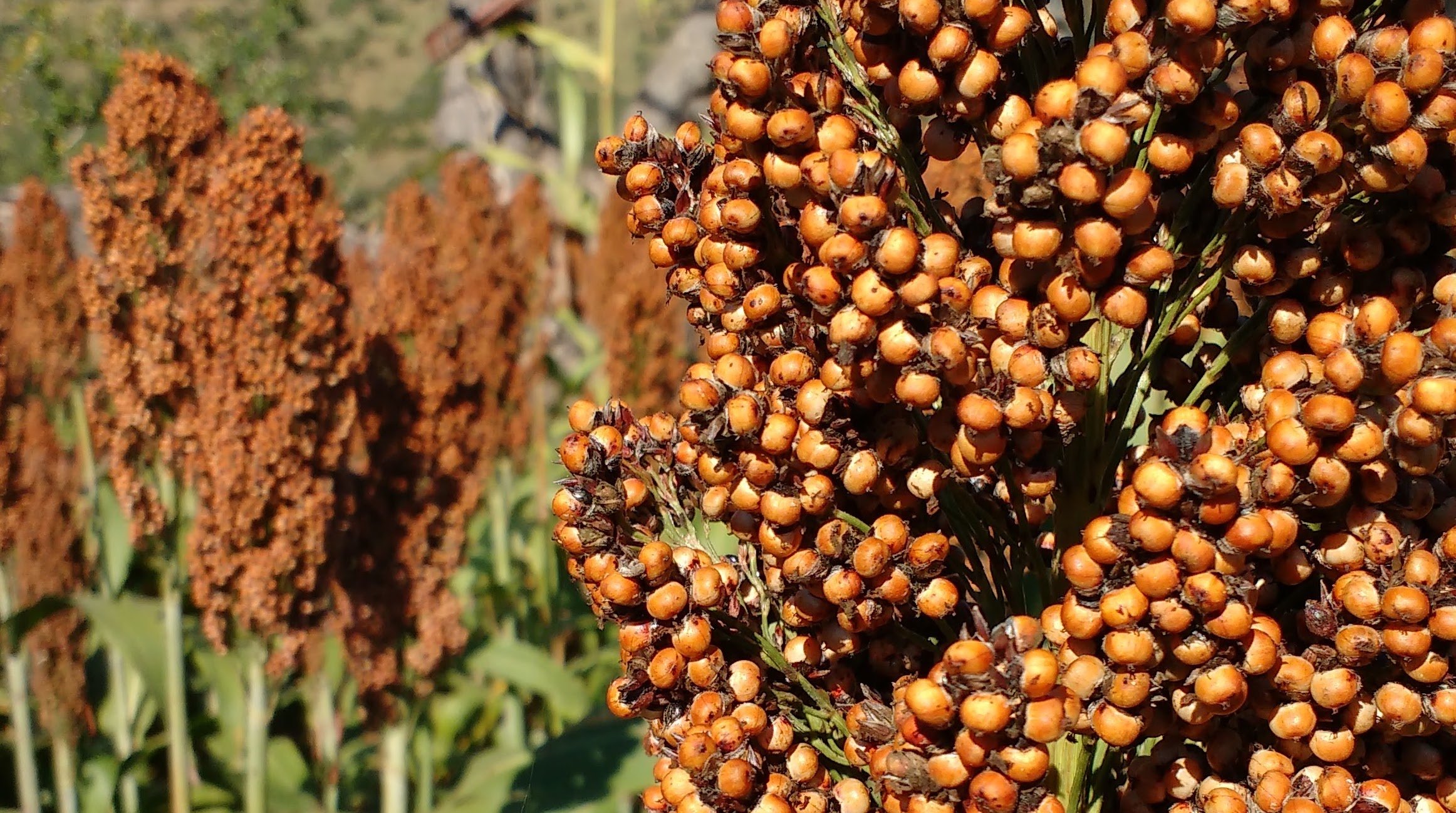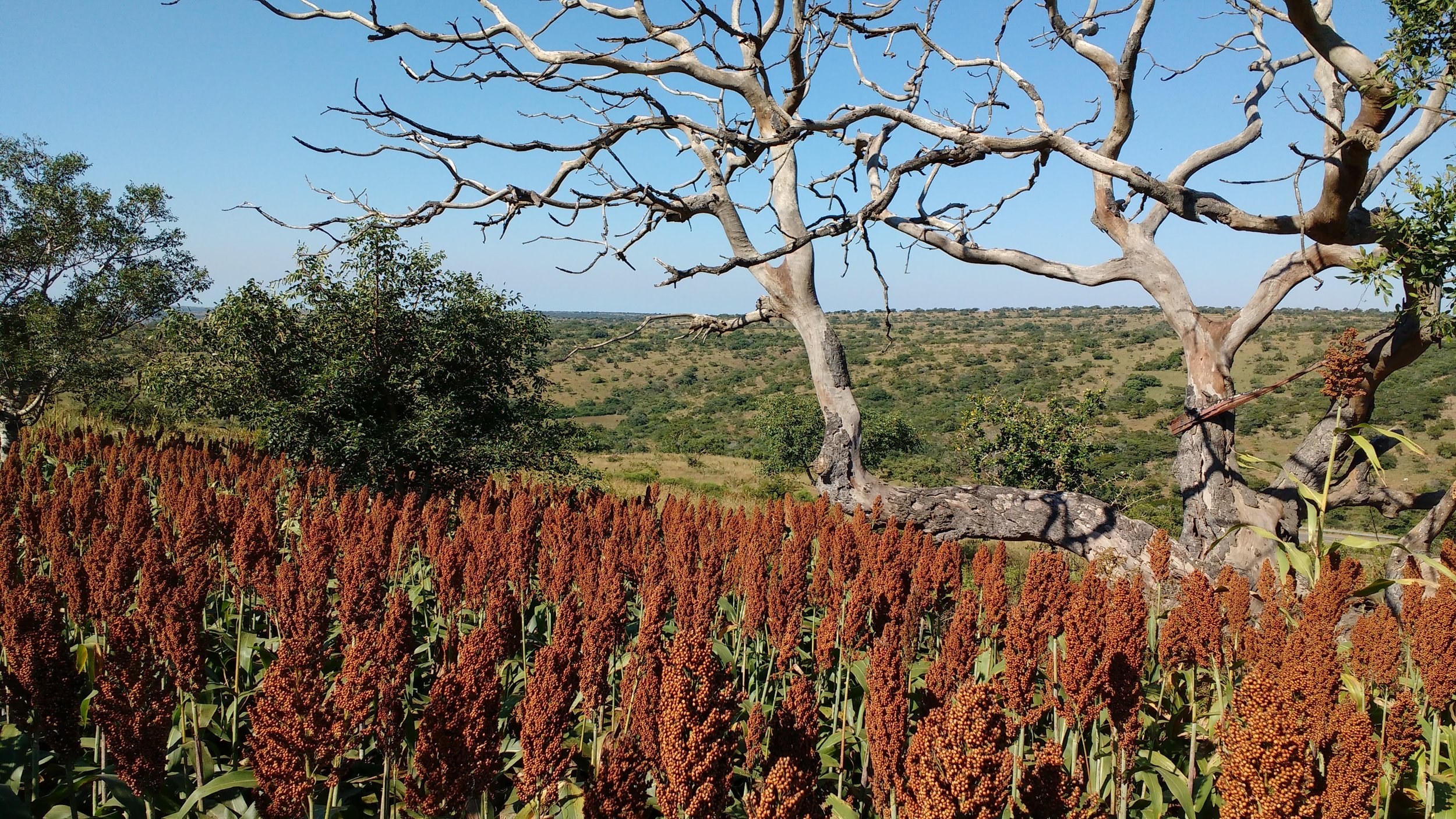
our story
In the 1990’s, we worked on a large NGO project designed to help farmers in Southern Zambia cope with drought. The project, like many others, focused on providing direct support – tangible activities that could be measured and reported against. In order to help farmer diversity away from maize, the project trained farmers how to grow drought tolerant crops and gave them seeds.
After time working on other NGO projects, in 2002 & 2003 we worked on a major drought response program in Southern Zambia. We were providing emergency food aid to 500,000 people, including some of the very same farmers we had worked with in better times during the 1990’s. We saw both the devastation drought brings and what little impact our project had had. It was clear that the project’s direct approach had not worked. It got us thinking.
What would we do differently to make sure these farmers weren’t as vulnerable to the next drought?
We realized that without a market for these drought tolerant crops it didn’t matter how much training or inputs we provided, if farmers could not sell the drought tolerant crops we were promoting it simply did not make sense to grow them. The farmers were more rational than we were.
Still working within the NGO system, we published our ideas and between 2005 – 2009 put these ideas into practice through a new project; a sorghum marketing project that linked farmers cooperatives to commercial markets for sorghum. The project demonstrated that farmers were willing and able to grow sorghum when there was a market. But it also demonstrated the inherent limitations of the systems of grant funded projects that NGOs implement.
We started families and our careers evolved; working across East & Southern Africa we kept seeing echoes of Southern Zambia in the problems that farmers across the region were struggled with; in Kitui County in Eastern Kenya, in the Lowveld of Swaziland, in Southern Malawi. Across the region hard working farmers in semi-arid areas were growing maize, knowing full well that it was likely to fail but knowing also that they had no alternative. We couldn’t stop thinking about the farmers in Southern Zambia and whether they were still facing the same problems we had seen decades ago.
So in 2019 we decided to return to Southern Zambia to see if, almost 20 years later, things would be any different for the farmers we had worked with in the 1990’s? We returned just after Southern Zambia had been hit by another big drought, the biggest since 2002
We found that 99% of farmers in Southern Zambia were still growing maize. We saw that there was as much need as ever for a functional sorghum market. We saw that NGOs, the UN and Donors have not been able to address the problem. We don’t want to come back in 10 years to find the same problem, to find farmers still growing maize, knowing full well that it will fail with the next drought but knowing also that they had no alternative. We can’t keep hoping that the system, with all the resources at its disposal, will address this problem. We have to do this ourselves.
We believe an alternative approach is needed. Not another NGO project. We believe that a successful business is the most sustainable approach to providing small-scale farmers with a functional sorghum market. NGO projects come and go but a business can continue to serve farmers year after year. This is why we started Southern Sorghum.

about us
Highland Hamadudu
Highland has 20 years extensive local experience of agriculture in Southern Zambia, having worked with the Ministry of Agriculture, NGOs and local communities. He has experience managing large-scale NGO food aid operations and is currently based in Kalomo.
Hunter Nielson
After serving for two years in eastern Zambia with the US Peace Corps, Hunter became the USAID Food for Peace monitor covering the southern-Africa drought in 2002-03. His role took him to southern Zambia where he witnessed both the outcome of widespread maize cultivation in semi-arid lands and the limited impact of NGO responses to it. Leaving Zambia, Hunter received his Masters of Science in Agricultural Economics from Michigan State University and moved to Tanzania where he worked as a consultant on a variety of market-driven solutions to poverty in the agriculture and livestock sectors. Now based in Kenya, Hunter is building on his decade of experience to return to the problem of sorghum afresh.
https://www.linkedin.com/in/hunter-nielson-7271aa59/
Miles Murray
Miles has 15 years experience managing NGO emergency food security & longer-term livelihoods programs, including large-scale food aid operations in Zambia. Working as an independent consultant for the past 8 years Miles has specialised on market analysis, Household Economy Analysis and market based programming. Working across East & Southern Africa, Miles has seen mirror images of the systems failure he had witnessed in Southern Zambia. In late 2019 Miles brought Hunter & Evans Mwengwe, who had managed CARE’s Sorghum Marketing Enterprise Project, together to return to Southern Zambia; to see whether farmers there were still facing the same challenges and if a for-purpose business might be more effective than the grant funded project cycle that NGOs are so reliant on.
